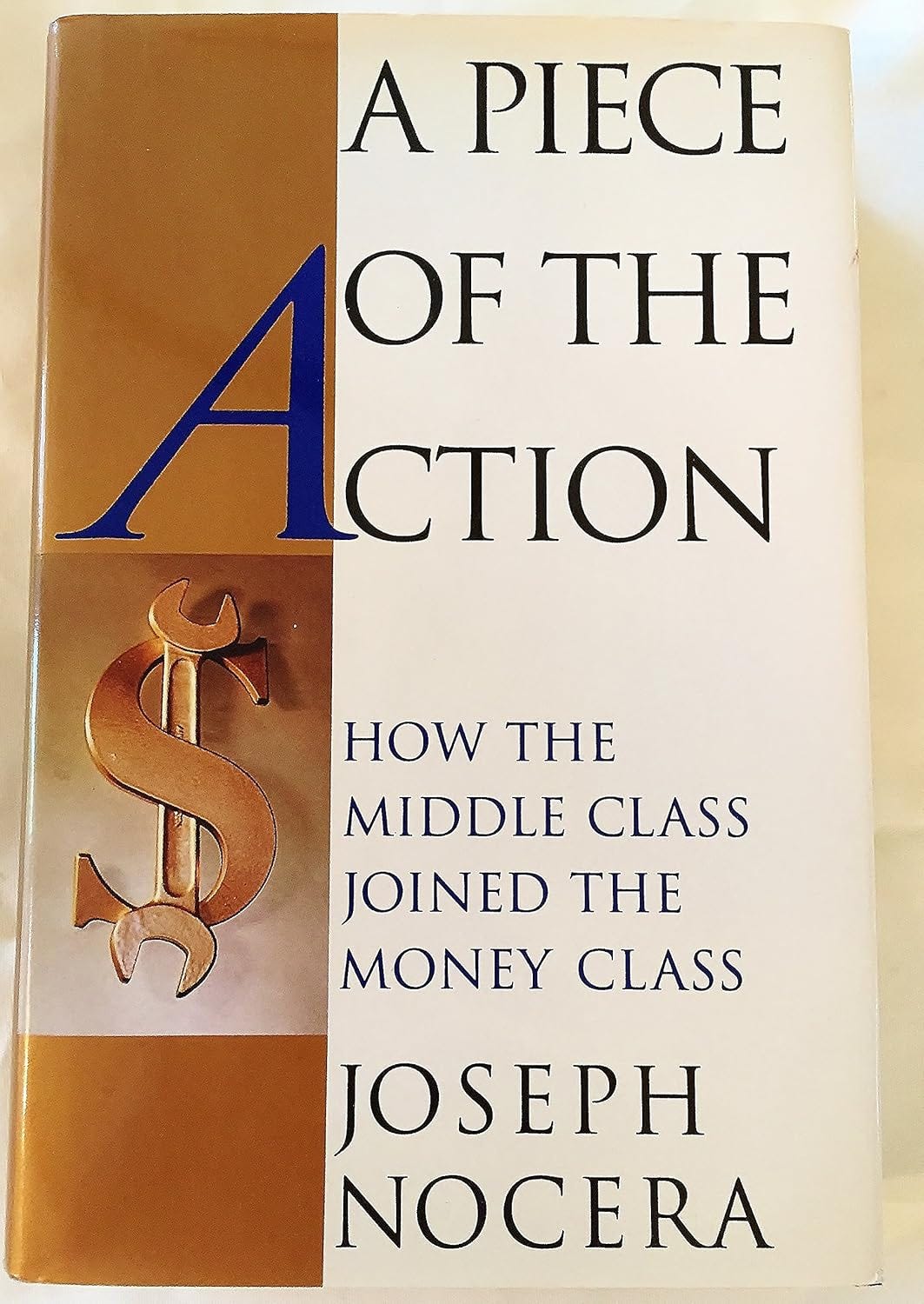The Descent of Money
How it got easier for banks to siphon a portion of transactions once carried out free of charge with little pieces of gold or silver, the end point being your Visa debit card.
Dipping into Joseph Nocera’s A Piece of the Action, his indispensable history of the postwar consumer-finance revolution, I notice to my surprise that there’s almost nothing in there about debit cards. That’s because it was published in 1994, when debit cards didn’t figure all that much in the retail economy. They were very useful for taking money out of your bank, of course, but that was about it. Banks didn’t much like allowing debit cards to be used in stores, mostly because debit cards didn’t create an opportunity to collect interest, as credit cards did. But also, I see in Nocera’s book, because there was a power struggle over who would control them. Dee Hock, creator of the first credit card, Bank Americard, which today we call Visa, was keen on expanding their use, thinking debit cards were the future. But Bank Americard was then a consortium of banks, which resisted Hock. Soon Hock was out at Visa.
Hock turned out to be right. Debit cards were the future. Visa eventually wised up and ended up dominating the market, miles ahead of Master Card. By 2020 debit-card spending exceeded, for the first time, credit-card spending. By 2022, the year of Hock’s death, Visa pulled in more revenue from debit cards than it did from credit cards. According to the Biden Justice Department, this was made possible by Visa’s anticompetitive behavior in managing its point-of-sale network. It makes a persuasive case. My latest for the New Republic situates the new Justice department antitrust suit against Visa inside the 4500-year history of money, which, I argue, is a history of money becoming ever-more-intangible and ever-easier for banks to siphon a portion their way from purchases that once were conducted free of charge. You can read it here. You should also read A Piece of the Action. It’s a great book.





Matt Stoller had a pretty thorough breakdown of the DoJ case the other day.
https://www.thebignewsletter.com/p/enforcers-move-to-cut-visas-private
I'm also hoping Felix Salmon will comment on this, he has been writing about the evils of signature debit (which can be priced higher in part because it's more prone to fraud), and over-priced transaction processing in general, for years.
Side note: we truly need to stop saying things like “Biden DOJ”. It’s not Biden DOJ, it’s the US DOJ. That kind of speak is one of the many Trumpian tactics used to divide and discredit. I expect it from MAGots, but come on, really? I very much respect and enjoy your writings, but that sort of detail disappoints. For real fam, let’s be/do better.